 Petzlover
Petzlover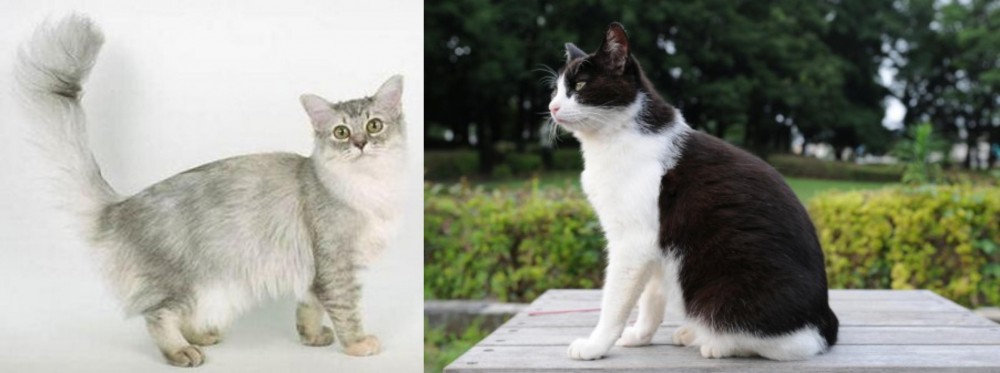 Asian Semi-Longhair is originated from United Kingdom but Bicolor is originated from United States. Both Asian Semi-Longhair and Bicolor are of same weight. Asian Semi-Longhair may live 3 years less than Bicolor. Both Asian Semi-Longhair and Bicolor has same litter size. Both Asian Semi-Longhair and Bicolor requires Moderate Maintenance.
Asian Semi-Longhair is originated from United Kingdom but Bicolor is originated from United States. Both Asian Semi-Longhair and Bicolor are of same weight. Asian Semi-Longhair may live 3 years less than Bicolor. Both Asian Semi-Longhair and Bicolor has same litter size. Both Asian Semi-Longhair and Bicolor requires Moderate Maintenance.
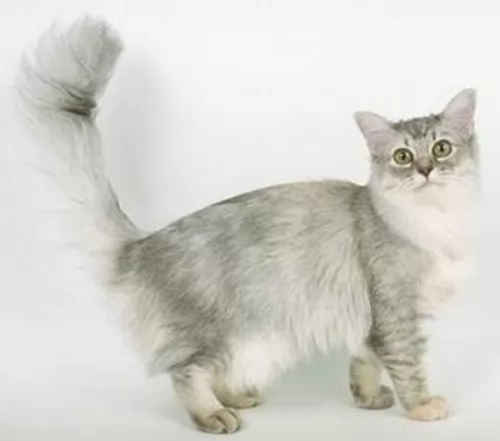 Similar to the Asian Shorthair, the Asian Semi-Longhair with its semi-long fur was developed in the UK in the 1980s and isn’t recognized by any U.S. registries.
Similar to the Asian Shorthair, the Asian Semi-Longhair with its semi-long fur was developed in the UK in the 1980s and isn’t recognized by any U.S. registries.
It is believed that the cat breed goes back to matings between the Chinchilla and Burmilla cats. This cat may not be recognized by any of the U.S. registries but it has recognition in the GCCF.
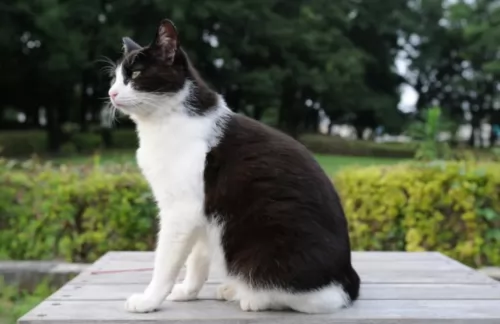 The first thing to know is that a Bicolor cat isn’t in fact a breed. Bicolor is just a term that describes a certain look that a cat has with its coat. It’s a cat with two colors such as red and white or black and white.
The first thing to know is that a Bicolor cat isn’t in fact a breed. Bicolor is just a term that describes a certain look that a cat has with its coat. It’s a cat with two colors such as red and white or black and white.
A popular name for bi-color cats is also Piebald or Tuxedo, and in fact many cat breeds can produce bicolor kittens, or black and white kittens such as Cornish Rex, Maine Coon, Manx, and others.
There are different coat color combinations when it comes to bicolor cats and the black and white markings may be more common but there are other color combinations too such as orange and white.
Nobody seems to know the origins of the Bicolor cats so we are going to assume they come from the USA.
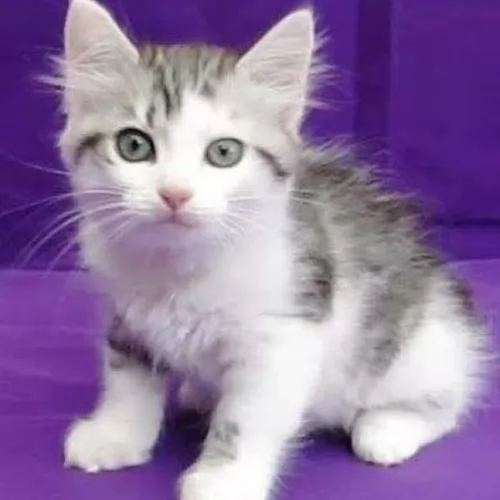 This beautiful cat is medium to large in size and can weigh up to 6 or 7kg. The body is compact, the face and eyes round with a slightly blunt snout. The ears are fairly small and pointed.
This beautiful cat is medium to large in size and can weigh up to 6 or 7kg. The body is compact, the face and eyes round with a slightly blunt snout. The ears are fairly small and pointed.
The luxurious silky coat comes in different colors and patterns such as black, brown, chocolate, blue and lilac, which happen to be the five main colors of this beautiful cat with his shiny green eyes.
The Asia Semi-Longhair is a gentle cat but curious and active. These are cats that become attached to their human owers and don’t like to share their humans with other cats.
They’re very talkative and they are therefore not the best breed to keep in an apartment. It’s also a cat that doesn’t like to be left on its own for long periods of time and will make a friend of children and other pets such as dogs if it means some companionship.
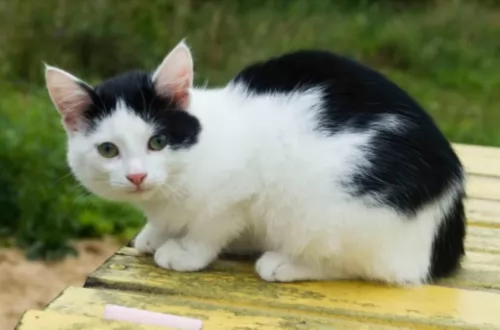 Regardless of the breed they belong to, information on these cats suggests that they can have many different looks. Look at the amazing Turkish Van cat for instance – each of these cats is recognizable for its long, luxurious fur. You’ll find a few touches of color on the cat's ears and tail, making in a Bicolor. They also have an interesting characteristic – being fond of water!
Regardless of the breed they belong to, information on these cats suggests that they can have many different looks. Look at the amazing Turkish Van cat for instance – each of these cats is recognizable for its long, luxurious fur. You’ll find a few touches of color on the cat's ears and tail, making in a Bicolor. They also have an interesting characteristic – being fond of water!
These Bicolor cats weigh in the region of 3 – 7kg, and can tend towards the smaller or larger size. Some of them can have short or long hair, larger or smaller ears and green or yellow eyes.
Coming from different cat breeds, the bicolor cat can have a mix of wonderful characteristics – they can be vocal or quiet or confident or shy.
They’re always wonderful though and can be curious, intelligent, playful, loving and loyal. They make great companions who just love the interaction they have with their human owners.
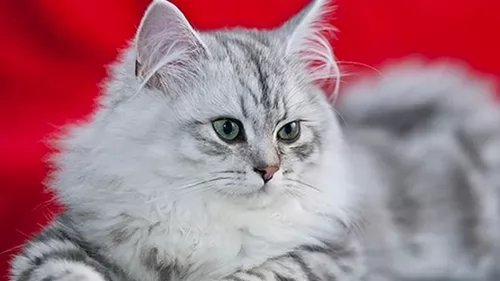 The Asian Semi-longhair is such a sociable, friendly cat and he loves his human family so much that he can’t bear to be separated from them. It is often referred to as being a dependent cat, as it absolutely hates being alone and does not want to be separated from the people he loves.
The Asian Semi-longhair is such a sociable, friendly cat and he loves his human family so much that he can’t bear to be separated from them. It is often referred to as being a dependent cat, as it absolutely hates being alone and does not want to be separated from the people he loves.
It’s not the type of cat to get if you work long hours and there is nobody else at home. It's the kind of cat that also gets on well with kids and dogs.
He is such a playful cat that even a yarn of wool will keep him amused for ages and he loves toys. For so much friendship coming from your feline friend, he deserves plenty of love and attention - after all, he is prepared to give you that.
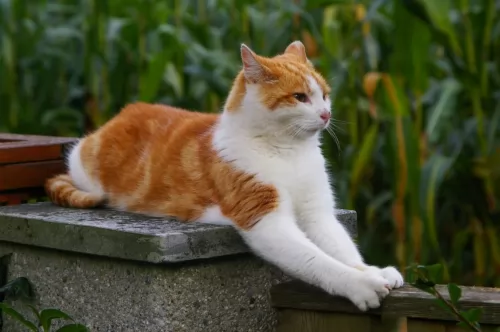 The Bicolor cat is such a steady, reliable cat-friend to have. When you start looking as these cats as your companion, you're going to get a smart, funny, adoring, playful family member who will be there for you whether you go to work each day or stay at home.
The Bicolor cat is such a steady, reliable cat-friend to have. When you start looking as these cats as your companion, you're going to get a smart, funny, adoring, playful family member who will be there for you whether you go to work each day or stay at home.
They’re such easygoing cats, with no airs and graces. They’re happy, relaxed, and uncomplicated cats and when you make a Bicolor your pet and friend, your life just becomes that much more meaningful.
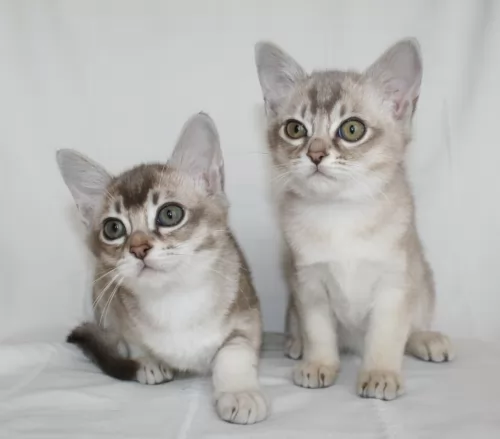 The Asian Semi-longhair is a robust cat, not prone to lots of health issues and he can reach up to 15 years of age.
The Asian Semi-longhair is a robust cat, not prone to lots of health issues and he can reach up to 15 years of age.
It doesn’t have any particular breed-specific diseases, but as with any cat, you want to be looking out for heart and periodontal diseases.
Also, hypokalaemic polymyopathy is a condition that results in muscle weakness and pain in your cat. The cause is low potassium and your pet's entire body can have muscle weakness.
Some other symptoms include being stiff, slow walking and an actual reluctance to walk. Some of the common causes of this illness include chronic kidney disease and poor diet.
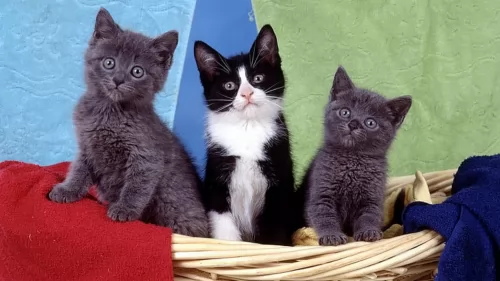 By providing your kitty cat with a loving home, you can ensure that he stays as healthy as possible. Unfortunately though, cats can get sick, regardless of how well you take care of them and then as a responsible pet owner, you will be able to take your pet to your local vet.
By providing your kitty cat with a loving home, you can ensure that he stays as healthy as possible. Unfortunately though, cats can get sick, regardless of how well you take care of them and then as a responsible pet owner, you will be able to take your pet to your local vet.
Some of the common cat problems you get can be kidney disease, ear infections, dental disease, parasites such as heartworm, cancer or something like feline immunodeficiency virus.
Whether your cat has a virus or an infection, remember that getting your cat to the vet can mean nipping the problem in the bud before it gets more serious.
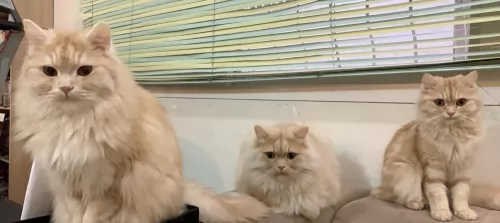 Your Asian Semi-Longhair will require regular deworming.
Your Asian Semi-Longhair will require regular deworming.
Keep your cat’s vaccines up to date.
The Asian Semi-longhair has moderate to long hair, and it’s a cat that sheds quite a bit so use a soft brush to brush the coat gently twice a week.
Have your cat spayed or neutered as this can prevent unwanted kittens. Not only this, doing this for your cat can be beneficial for your cat and bring out better characteristics in them. They no longer want to roam and mark territory. In the female cat it's the removal of the cat’s ovaries and uterus, and with the male cat, neutering is the removal of the cat’s testicles.
After this op, your vet will explain to you how to look after your recovering pet.
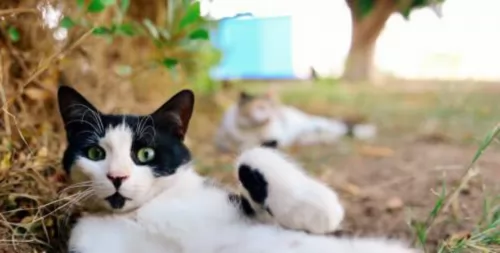 Caring for your Bicolor cat is much the same as with any other cat. Your Bicolor will shed, so brushing him will tickle him pink, especially if you do it lovingly and gently – it’s like a bonding session. The weekly brushing will get rid of loose hairs and dust and keep the coat healthy and shiny.
Caring for your Bicolor cat is much the same as with any other cat. Your Bicolor will shed, so brushing him will tickle him pink, especially if you do it lovingly and gently – it’s like a bonding session. The weekly brushing will get rid of loose hairs and dust and keep the coat healthy and shiny.
Spay or neuter your pet to avoid unwanted kittens. Stay up to date on veterinary visits and vaccinations.
Provide your cat with stimulating toys as well as all the equipment he needs to be comfortable – food and water bowls, litter box, grooming equipment, bedding, climbing- and scratching equipment.
All cat owners, whether their cats eat homemade food or wet- or dry food should read cat food labels and understand the nutrients content.
Certainly, as a carnivore, cats require certain vitamins, minerals, and proteins that only meat can provide.
Understand how to work out if the cat food is balanced or not and not packed with too many grains and carbohydrates.
How much your Bicolor eats will depend on his age and his activity levels. Be careful not to overfeed your cat as overfeeding is dangerous. When cats put on too much weight, it leads to problems such as diabetes, heart- and joint disease.